Presented at the 2013 Theological Conference
Sponsored by Restoration Fellowship
by Sean Finnegan
From the earliest days of Jesus’ Jewish apocalypticism to Augustine’s authoritative City of God, early Christians have held a variety of views about the final home of God’s people. Already in middle of the second century, Justin Martyr reports Christians held opposing eschatologies.[1] Some believed the earth would be the site of history’s final consummation while others regarded heaven as the destination for the righteous. Adherents of these competing views vied for dominance for several centuries before the heaven idea won out, becoming the standard notion most Christians hold right down to the present day.
In analyzing anti-millenarian polemics, I have found three primary reasons that Christians used to combat the kingdom-on-earth doctrine: they rebuffed it as crude, hedonistic, and Jewish.[2] In what follows, I will present the case for the first of these three, detailing why some Christians thought millenarianism[3] was an uncouth idea unworthy of God. Before delving into the substance of my argument, I will briefly explain why I find some of the common explanations for rejecting the kingdom of God unconvincing.
Unconvincing Reasons Millenarianism Was Rejected
The four typical reasons given for preferring a heavenly hope are: reevaluation due to the delay of the second coming, millenarianism’s association with Montanism, biblical incongruities, and the Constantinian shift. I will take each of these in turn.
The Delay Hypothesis
Recently, Barrie Wilson argued that the delay of the kingdom drove a variety of responses in the years that followed Jesus’ crucifixion. While some retained a this-worldly eschatology others spiritualized the kingdom idea or adopted an afterlife position. He proposed that the prolonging of Christ’s return to establish the kingdom on earth was the reason “enthusiasm for this approach withered.”[4] Although the delay hypothesis is plausible it lacks cogency for several reasons. Firstly, as Wilson himself recognized, second century literature is replete with robust millenarianism. Rather than flouting “a supposedly ‘real’ apocalyptic perspective,” observed McGinn, thinkers like Papias, Justin Martyr, and Irenaeus emphasized the physicality of the hope.[5] In addition, later anti-millenarian polemics did not argue that their opponents needed to face the delay issue, a point that would have significantly augmented their case. Furthermore, millenarianism did not die out in the second century as evidenced by advocates like Tertullian, Commodianus, Novatian, Victorinus, Methodius, and Lactantius who thrived in the third and fourth centuries. By Jerome’s time, in the fifth century, he evinced anxiety that his proposed “spiritual” interpretation would be rejected by many of his peers.[6] I am not suggesting here that the lag of history’s final dénouement to materialize played no role in Christian thought; it certainly did.[7] Nevertheless, I am proposing that it did not exert a significant influence in the debate over a terrestrial hope. For example, Hippolytus and Tertullian both interacted with the kingdom’s delay, but neither altered their belief in the physical kingdom on that basis.[8]
The Montanism Hypothesis
Giving voice to the reigning paradigm in much scholarship of the nineteenth century, Arthur Cushman McGiffert wrote, “The Chiliastic ideas of Montanism produced a reaction in the Church which caused the final rejection of all grossly physical Premillenarian beliefs which up to this time had been very common.”[9] Although such a hypothesis is plausible, we have solid grounds for rejecting it. Contra Adolf Harnack and Jean Daniélou, Charles Hill argued in his Regnum Caelorum that the Montanists were not chiliasts at all. He notes, “[S]everal scholars have challenged the assumption of a strongly eschatological orientation…on the part of the New Prophetic movement.”[10] As with so many of the “heretical” groups of antiquity, very few primary writings have survived. What we have are occasional citations embedded in polemics. Only a few Montanist oracles are extant, preserved by Eusebius and Epiphanius; of these only a couple relate to eschatology. Anti-Montanists generally focused on the Montanist mode of ecstatic prophesy along with their extreme asceticism. Still, there are two statements, if Epiphanius can be trusted, in which eschatological expectations find expression. In the first, Maximilla is reported to say, “After me there will be no prophet, but the consummation” (Panarion 48.2.4)[11] The second is when either Priscilla or, more likely, Quintilla said, “Christ came to me…and revealed to me that this place is holy, and that it is here that Jerusalem will descend from heaven” (ibid., 49.1)[12] These two statements certainly coincide with an apocalyptic outlook. But, even if they were millenarians, they were not, as a movement, characterized by it—at least not by their detractors. For example, both Eusebius and Jerome would have undoubtedly capitalized on such a belief, as they do elsewhere, in order to refute them. Since none of the polemicists linked millenarianism to Montanism, when doing so would have sharpened their rhetoric, we can safely conclude that the rejection of this movement did not play a role in repudiating millenarianism.
The Scripture Hypothesis
A third reason that I am not convinced motivated anti-millenarian polemics relates to Scripture. As with any of the topics discussed by the early Christians, eschatological writings are rife with Scripture quotations and allusions. Even if advocates of a heavenly hope pointed to texts like Galatians 4.26 and Hebrews 12.22 for support, our problem is that the millenarians also marshaled support from the same Bible, typically placing considerable weight on the prophets. Furthermore, sometimes proponents from opposing sides cite the same text to make the opposite point. The battle was not waged over what the Bible said per se, but over how one should read it.[13] Thus, although the Bible was highly esteemed by both sides and occupied a dominant role in influencing their doctrinal constructions, it was used by both sides and so cannot be determinative for spurning millenarianism.
The Constantinian Shift Hypothesis
Lastly, scholars have sometimes associated a rejection of an eschatological earthly kingdom with the Constantinian shift of the fourth century. For example, Donald Fairbairn writes, “[W]ith the conversion of the empire in the early fourth century…[and] with the bitterness of persecution past, they felt less need to cling fervently to the scriptural promises…and so there was more openness to interpreting biblical passages about such hope in a less earthly way.”[14] This premise is flawed for at least two reasons. Firstly, Hill has shown by carefully analyzing early martyrologies that persecution, far from enhancing chiliast tendencies, in actuality had the opposite effect. He concludes, “The expectation of an immediate enjoyment of heaven or of the heavenly kingdom meets us in four of these five accounts or authors.”[15] In fact, some chiliasts even believed martyrs bypassed the usual waiting period and ascended directly to heaven upon death. Secondly, we have polemics against millenarians that ante-date Constantine from Gaius, Origen, and Dionysius. This is not to say that Eusebius’ assessment of Constantine as God’s vicegerent on earth had no effect, but it was not a driving force in rejecting millenarianism, even for him.
Moving beyond these four explanations, I will focus on the first of my three reasons—that the kingdom was too crude. I will begin by presenting evidence from the anti-millenarian writers themselves, showing that they did in fact label a terrestrial hope as crude. Then by analyzing the ancient Greco-Roman views about cosmology and transience, I will argue that these biases played a significant role in rejecting a this-worldly hope.
Evidence that Millenarianism Was Considered Crude
Anti-millenarian writers often associated an earthly hope and the literal exegesis required to arrive at that belief with people who were uneducated and simple-minded. The first of several examples illustrating the widespread predilection for regarding millenarianism as crude comes from the third century scholar, Origen of Alexandria. His modus operandi was to hold back more esoteric theology when speaking in public, because he recognized that there were Christians of differing levels of maturity and education. He was often cautious not to burden the simple minded with complex theological propositions and speculations that they would likely misunderstand. However, there were some things that even the simple needed to avoid. In his Commentary on the Song of Songs he writes about “simpler Christians” who believe “that after resurrection…corporeal foods must be used and drink taken” (Commentary on the Song of Songs Prologue). [16] As a result these unsophisticated millenarian Christians “turned themselves to certain foolish stories and vain fictions [about the corporeality of the world to come]” (ibid.). While discussing the resurrection, a critical component of Christian eschatology on both sides, he derided those who “either from poverty of intellect or from lack of instruction introduce an exceedingly low and mean idea of the resurrection of the body” (On First Principles 2.10.3, henceforth Princ.).[17]
Nepos, a contemporary of Origen, was an important and influential bishop in Fayyum, Egypt who preached, “The kingdom of Christ will be on earth” (Ecclesiastical History 7.24, henceforth H.E.).[18] After his death, his book The Refutation of the Allegorists, now unsurprisingly lost, was held by many in his community to offer irrefutable proof for this notion. In the mid-third century Bishop Dinoysius of Alexandria, himself a staunch Origenist, wrote On the Promises against Nepos’ millenarianism and went down to Arsinoë in an effort to persuade his followers to turn away from “whatever appears to be unsoundly composed” (ibid.) His motivation for this trip was that Nepos’ eschatology did not “allow our simpler brethren to have high and noble thoughts,” but instead persuaded them “to hope for the small and mortal and such as are of the present in the Kingdom of God” (ibid.). From Dionysius’ perspective the millenarian hope, though patently low and ignoble, still held appeal for the uneducated, which is why he took it upon himself to convince them otherwise.
When Eusebius, the early fourth century bishop of Caesarea, wrote about Papias, an early second century chiliast, he thought his belief that “the kingdom of Christ will be established on this earth in material form” resulted from his lack of sophistication (H.E. 3.39). He attributed Papias’ seemingly obvious exegetical blunder to “a perverse reading of the accounts of the Apostles, not realizing that these were expressed by them mystically in figures” (ibid.). Eusebius goes on, “For he appears to be a man of very little intelligence, to speak judging from his books” (ibid.). Once again millenarianism was equated with a lack of sophistication.
Augustine, the early fifth century bishop of Hippo, had believed “the Lord will reign on earth with His saints, as the Scriptures say, and here He will have His Church, into which no wicked person will enter, separated and cleansed from every contagion of iniquity” (Sermons Maurist edition, 259.2, henceforth Serm.).[19] However, later on he came to change his view and adopted a new understanding of the first resurrection (Rev 20.1-4). His earlier view that “the first resurrection is future and bodily” he labeled “ridiculous fancies” (On the City of God, 20.7.1). In another sermon he expressed anxiety about non-Christian intellectuals finding out about the belief that resurrected “bodies are going to be victorious on a new earth and not in heaven” (Serm. 242.5). Talking like this to “those pagan philosophers…would be speaking boldly and rashly” (ibid.).
What was the rationale among educated Christians that caused them to regard living on a renewed earth forever intellectually offensive? Although, there were multiple reasons, one of the primary ones was a conflict with cosmology.[20] In order to further probe this issue, we must acquaint ourselves with standard views of cosmology in the patristic era.
Standard Cosmogony and Cosmology Privileged Immutability
Of what is the universe composed? How do the parts interact? Is what we see all there is? Questions like these drove philosophers from Thales of Milesia onward to propose a variety of cosmologies and cosmogonies.[21] Plato’s Timaeus, in particular, became immensely influential for thinkers in imperial times.[22] In it, Plato describes an idea the Pythagoreans before him had developed—that change is inferior to stability. Like numbers, which are always the same, Plato’s theory of forms postulated a whole immutable realm, populated with perfect archetypes corresponding to earthly realities. In Timaeus[23] he laid down a potent myth that shaped cosmological thought for centuries. He made an important distinction between “what always exists having no beginning” (τὸ ὂν ἀεί, γένεσιν δὲ οὐκ ἔχον) and “what is always becoming but never being” (τὸ γιγνόμενον ἀεί, ὂν δὲ οὐδέποτε): the former is known through logic (λόγος) based on mental-perception (νόησις) whereas the latter is a matter of opinion (δόξα) based on sense-perception (αἴσθησις) (Timaeus 28a). The one enjoys radical stability whereas the other is characterized by change, always becoming and perishing. The terse dictum, “as being is to becoming, so is truth to belief” indicates his general skepticism about his ability to say anything that is actually true about the sense-perceptible world seeing that it is itself subject to constant flux (Tim. 29c). Plato’s craftsman (δημιουργός) looks to the eternal realm as a model for arranging the chaotic elements into the organized cosmos (Tim. 29a). The demiurge is neither malevolent nor incompetent but a good craftsman who makes the best possible world (Tim. 30a). Still, as Eduardo Zeller points out, “nature was considered [an] inferior copy of the world of ideas which possessed no reality in a full sense.”[24]
So pervasive was Plato’s cosmogony that later thinkers adopted and adapted it to their own particular interests. In the first century, Philo of Alexandria, who significantly influenced patristic thinkers, accomplished a significant reworking of Plato’s old creation story. As a Jew, he had a high regard for the Septuagint; as an eclectic philosopher he paid homage to Hellenism. He was motivated by a desire to resolve tensions between his own biblical account of creation and the one composed by Plato. He set to allegorizing the Genesis narrative so that it harmonized with Timaeus. The result was his On the Creation of the World in which the Jewish God took the place of the demiurge (though in Philo’s version God worked through intermediaries since the immutable one must always remain in perfect stability).[25] For Philo, “the earth and water have been assigned the lowest situation in the universe” (On the Special Laws 1.94, henceforth Laws). My interest here is not to sum up Philo’s view but merely to note that he felt a need to reconfigure the biblical account in order to make it compatible with the reigning educated cosmogony of his day.
The second-century Gnostics also borrowed from Timaeus, radicalizing its dualism into a good spiritual realm (πλήρωμα) and an evil material realm. Like Plato they conceived of God as immutable and ineffable. First Thought in Three Forms describes the One as “the unchangeable voice…unique, incorruptible.”[26] God goes on to give instruction “about the coming end of the realm” and “the beginning of the coming realm, which does not experience change.” The few who have received such knowledge are the only ones worthy of “thinking of my unchangeable eternal realm” (ibid.). The two domains are kept distinct by a “veil” between them (The Reality of the Rulers 94.1-16, henceforth Reality). In contrast to the immutable realm, the created world is the consequence of cosmic delinquency. Sophia created alone without her partner producing a shadow that became matter. Her offspring was “a product in the matter like an aborted foetus” (ibid.). Ialdabaoth, the child of Sophia, was the demiurge who crafted the material order with ignoble intent. Even so, the true seed are able to “trample under foot death…and they will ascend into the limitless light, where this posterity belongs” (Reality 97.5-7). In the Valentinian revision of the Gnostic cosmogony contained in the Treatise on Resurrection, the πλήρωμα “did not come into being; it simply was” whereas “that which broke loose and became the universe is trifling.” The goal is to escape “this element (the body), so that one might…recover one’s former state of being” (Treatise on Resurrection 46.35-38, 49.30-34). Although to modern readers the multiplication of aeons and the pre-cosmic accidental creation of the material realm may seem confusing or even repelling, Bentley Layton notes, “[a] philosophical myth of this kind was generally fashionable in the second century a.d., following a revival of interest in Plato’s mythic tale of creation, the Timaeus, in the previous two centuries.”[27]
Beyond Philo, the Gnostics, and the Valentinians, it is clear that many other philosophers also held to Plato’s idea of a higher immutable realm superior to this lower transient world. Plato’s cosmology, according to Zeller, played a role in the philosophy of second and third century thinkers including Gaius, Albinus, Maximus of Tyre, Severus, Numenius of Apanea, Harpocration of Argos, Hermes Trismegistus, Plotinus, and Porphyry. [28] Plotinus’ Neo-Platonism became particularly influential on Christianity. Even though Plotinus rebuffed the Gnostics for claiming that the cosmos and the demiurge are evil, he did so without abandoning Platonic cosmology. In fact his main contention with them was that they were misinterpreting and distorting Plato’s Timaeus. He writes, “In every way they misrepresent Plato’s theory as to the method of creation as in many other respects they dishonour his teaching” (Enneads 2.9.6, henceforth En.).[29] He asked the Gnostics, “[W]hat reflection of that world could be conceived more beautiful than this of ours?” (En. 2.9.4). Yet, even if our globe was “minutely perfect” and “admirably ordered” it was still a mere copy of the realm of the forms (En. 2.9.4, 8).
Paula Fredriksen concisely portrays the cosmological picture held by Greco-Roman thinkers with the following words:
In the imagined architecture of the ancient cosmos, the earth stood at the center of the seven planetary spheres, at the furthest remove—spatially and ontologically—from the regions of increasing stability and harmony that stretched from the moon upward toward the planets and the realm of the fixed stars. Such a worldview is prejudiced in favor of the ‘upperwordly’ and spiritual;[30]
Although there were differing solutions explaining how a transcendent being produced the material realm, the Platonic sensibility that being is superior to becoming and immutability to transience, generally dominated the paideia of antiquity.
How Privileging Immutability Resulted in a Tendency to Reject Millenarianism as Crude
I am not making the case that anti-millenarian polemicists were confined by Plato’s cosmology in all of its details; I am merely asserting that educated people of the time had a certain common sense about cosmology. Generally speaking, élite Christians submerged in the Hellenistic milieu of the imperial period “knew” that transience was inferior to stability and that the present cosmos was inferior to the higher realm. Or in the words of Joseph W. Trigg, “Their [the world’s and the human body’s] materiality, which made them subject to change, kept them from being an ultimate good because what is ultimately good is always the same.”[31]
This is significant for our present study because eschatology is influenced by cosmogony and cosmology; how one conceives of the origin and present condition of the universe alters one’s belief about the end. For example, Pseudo-Barnabas wrote, “The Lord says, ‘Behold, I will make the last things as the first’” (Epistle of Barnabas 6.13).[32] The Gospel of Thomas puts it, “For the end will be where the beginning is” (Gospel of Thomas 18). Origen, as if stating a maxim, says, “For the end is always like the beginning” (Princ. 1.6.2). The thought of remaining subject to flux forever in this present lower realm seemed crass at best and absurd at worst. Thus, an eschatology, such as millenarianism that featured life on a corporeal earth where embodied people would pass time experiencing change, clashed with the reigning cosmologies of the day and thus appeared crude and patently false. Fredriksen sums up the matter succinctly:
Many thinking Christians from the second century onward could not take seriously the proposition that lower, material reality was the proper arena of redemption…their grasp of the principles of philosophy made claims to physical redemption seem incoherent and ignorant, these Christians repudiated the idea of a fleshly resurrection and a kingdom of God on earth.[33]
Conclusion
Although the science of antiquity pressured educated Christian thinkers to reject God’s plan for the world, modern cosmology and metaphysics no longer privilege immutability over transience. If anything, due to Albert Einstein’s work on relativity and the subsequent advances in quantum theory in the twentieth century, modern scientists regard radical immutability as incoherent. Furthermore, on a social level, the green movement is inspiring people to live sustainably, exalting the earth as precious and worth saving. How many environmental tragedies could have been avoided if the early church fathers had chosen to reject the reigning paradigms of the “scientific guild” and embrace the kingdom doctrine instead? If western culture had found its roots in the soil of stewardship and creation care in anticipation of God’s ultimate restoration of our planet rather than the evacuationist theology well-articulated by the words of the old hymn, “This world is not my home, I’m just a passing through,” how much farther ahead would humanity be in discovering and harnessing cleaner lifestyles and energy sources? Of course, we have no way of predicting what would have happened if Christians had courageously defied conventional common sense to hold fast to the teachings of Scripture, but we can at least learn a valuable lesson from their mistakes.
Nevertheless, reinventing, distorting, or dismissing millenarianism has much severer consequences than environmental rapacity. Renouncing the kingdom results in alienation from Jesus—the king of the kingdom—and his message of salvation. Even before the Romans crucified Jesus for claiming to be “the King of the Jews,” he was known by his disciples as the Jewish Messiah—the one destined to rule the world from the throne of David.[34] Later on, when Matthew and Luke wrote their respective Gospels, they emphasized Jesus’ messianic office in their birth-narratives, the former by detailing Jesus’ genealogical, royal pedigree and the latter by including the following words of the angel Gabriel:
Coming to her, he said, “Rejoice! favored one, the Lord is with you.”…and the angel said to her, “Do not be afraid, Mariam, for you have found favor with God. Behold, you will conceive in your womb and will give birth to a son; you will call his name Jesus. He will be great and he will be called a son of the highest; the Lord God will give him the throne of David his father. He will reign over the house of Jacob forever; of his kingdom there will be no end.” (Luke 1.28, 29-33)
To claim knowledge of Jesus without knowing that his destiny is to rule the world is like being friends with the president of the United States without realizing his or her occupation. Jesus’ anointing as the Davidic king was not some miniscule or insignificant detail, but something that defined him from his birth to his ministry to his death—everything flowed from his identity as God’s supreme representative who would one day rule the world.[35] Furthermore, Jesus talked about the kingdom constantly both when he was publicly proclaiming the gospel and when he was alone with his disciples.[36] From picking twelve apostles to healing the sick and casting out demons, his whole ministry was saturated with kingdom allusions. One simply cannot know the historical Jesus, much less the one who will come again, without understanding the kingdom of God nor can one hope to grasp the gospel message without it. Although biblical scholars today generally recognize the centrality of millenarianism for Jesus, the average Christian is still blissfully unaware of Jesus’ gospel and destiny. The kingdom remains obscure while flitting off to the eternal realm enjoys near universal acceptance.
References:
[1] Dialogue with Trypho 80.2
[2] The period I focused on is from the second to the fifth century. Locating anti-millenarian polemics is a time consuming process and I have no doubt that there are others passages that I have not yet discovered. Nonetheless, I have found quite a few and the data I collected clustered around the three reasons I gave. I do not claim to have in any way exhausted this subject and suspect that there are other equally compelling reasons beyond my three.
[3] Millenarianism, as I am using the term, refers to a broad category encompassing not only apocalypticism and chiliasm, but also other conceptions that locate the site for eschatological redemption on earth. It is grounded in the idea, as Robert Wilken put it, of “a real kingdom in this world.” (Robert Wilken, “Early Christian Chiliasm, Jewish Messianism, and the Idea of the Holy Land” Harvard Theological Review 79, no. 1-3 (Jan. – Jul., 1986), 299.) I follow Bernard McGinn in using millenarianism to refer to “the wider phenomenon of any hope for a better future earthly age.” (McGinn, “Turning Points,” 84 (fn. 12).) Believing that the kingdom God establishes lasts for a thousand years is not a necessary criterion for someone to be a millenarian, as I am using it. (Of course I do realize that millenarian derives from the Latin word for millennium, but since I could not find a more etymologically correct term, I chose to use it rather than coining a neologism.) I am interested in the Christian form of Jewish messianism—the belief that the messiah will return to earth and establish God’s reign, populating it with the resurrected saints who will live in physical bodies, and henceforth I will use millenarianism to refer to this general framework.
[4] Barrie Wilson, How Jesus Became Christian, (New York: St. Martin’s Press, 2008), 216-217.
[5] Bernard McGinn, “Turning Points in Early Christian Apocalypse Exegesis,” in Apocalyptic Thought in Early Christianity, ed. Robert J. Daly (Grand Rapids: Baker Academic, 2009), 83-4.
[6] Jerome, Commentary to Isaiah, Prologue to Book 18.
[7] Concerns over the delay are expressed in 2 Peter 3.3-4, 1 Clement 23.3-5, and the Ascension of Isaiah 3.21-22.
[8] Hippolytus developed a chronology based on the week of millennia typology putting himself approximately 300 years from the end and in so doing deemphasized the imminence ideology replacing it with a concern for the present role of the Church (see Davd G. Dunbar, “The Delay of the Parousia in Hippolytus,” Vigiliae Christianae 37, no. 4 (December 1983), 315-318). Hippolytus did not abandon a certain realism with respect to biblical prophecy. Dunbar notes how Hippolytus interpreted apocalyptic texts as having fulfillment “in concrete historical events” (ibid., 326, fn. 52). For Tertullian see Apology 39 where he says, “We pray, too, for the emperors, for their ministers and for all in authority, for the welfare of the world, for the prevalence of peace, for the delay of the final consummation” (Tertullian, Apology, trans. S. Thelwall, vol. 3 of The Ante-Nicene Fathers, ed. Alexander Roberts and James Donaldson, (Grand Rapids: Eerdmans, 1993), 2-55.). See also chapter 32.
[9] Eusebius, The Church History, trans. Arthur Cushman Mcgiffert, vol.2 of The Nicene and Post-Nicene Fathers, ed. Philip Schaff, (Grand Rapids: Eerdmans 1993), 229.
[10] Charles E. Hill, Regnum Caelorum: Patterns of Millennial Thought in Early Christianity (Grand Rapids: Eerdmans 2001), 144. The scholars cited are Powell, Schöllgen, and Tabernee.
[11] trans., Hill, Regnum Caelorum, 146.
[12] ibid., 145. We have a more reliable tradition from Apollonius that Montanus is the one who named Pepouza and Tymion Jerusalem (Eusebius, Ecclesiastical History 5.18.2). William Tabernee regards Montanus’ act “to have been organizational rather than eschatological” (William Tabernee, “Revelation 21 and the Montanist ‘New Jerusalem,’” Australian Biblical Review 37 (1989), 57).
[13] Hermeneutical strategies loomed large in the debate over eschatology, but this was more a tool than a motivation. Anti-millenarians generally embraced allegory while kingdom believers preferred to interpret Scripture more literally. Since allegory depends on detecting “hooks” in the text that indicate a deeper meaning is necessary, a priori doctrinal concerns determined the meaning of the text rather than the other way around.
[14] Donald Fairbairn, “Contemporary Millenial/Tribulational Debates,” in A Case for Historic Premillennialism, ed. Craig L. Blomberg and Sung Wook Chung (Grand Rapids: Baker Academic, 2009), 115.
[15] Hill, Regnum Caelorum, 142.
[16] trans., Rowan Greer, Origen, The Classics of Western Spirituality (Mahwah, NJ: Paulist Press, 1979), 222.
[17] All quotations of Origen’s On First Principles from G. W. Butterworth, Origen On First Principles (Gloucester, MA: Peter Smith, 1973).
[18] All quotations of Eusebius’ Ecclesiastical History from Roy J. Deferrari, Eusebius Pamphili: Ecclesiastical History: Books 1-5, Fathers of the Church (New York: Fathers of the Church, inc., 1953) and Ecclesiastical History from Roy J. Deferrari, Eusebius Pamphili: Ecclesiastical History: Books 6-10, Fathers of the Church (New York: Fathers of the Church, inc., 1955). Wilken notes, “Nepos was neither a heretic nor a crazy on the fringe; he was a respected and admired Christian leader” (Robert Wilken, The Land Called Holy (New Haven: Yale University Press, 1992), 76).
[19] All quotes of Augustine from William A. Jurgens, The Faith of the Early Fathers vol. 3, (Collegeville, MN: The Liturgical Press, 1979).
[20] Cosmology is a belief about what the world is and how it works; it is the science of cosmos.
[21] Cosmogony is the story of creation; it is an account or narrative detailing the birth of the cosmos.
[22] Eugene de Faye said of the Timaeus, “It would be impossible to exaggerate the influence of the Timaeus” (Origen and His Work, (London: Unwin Brothers Ltd., 1926), 79.).
[23] Greek excerpts from Platonis Opera, ed. John Burnet (Oxford: Oxford University Press, 1903).
[24] Eduardo Zeller, Outlines of the History of Greek Philosophy (London:Routledge & Kegan Paul Ltd., 1969),144-5.
[25] Philo, On the Creation of the World 10; On the Confusion of Languages 106; Questions in Genesis 3.1
[26] First Thought in Three Forms, II. Destiny (Poem 5) lines 7, 8, 18-22, 25-26, all quotations of Gnostic and Valentinian sources from Bentley Layton, The Gnostic Scriptures (New York: Doubleday, 1987).
[27] Layton, 12.
[28] Zeller, 287-303.
[29] All quotations of Plotinus’ Enneads from Stephen Mackenna and B.S. Page, The Six Enneads (Burdett, NY: Paul Brunton Philosophic Foundation, 1992).
[30] Paula Fredriksen, “Apocalypse and Redemption in Early Christianity: From John of Patmos to Augustine of Hippo,” Vigiliae Christianae 45, no. 2 (June, 1991), 170 (fn 16). (for bibliography pp. 151-183).
[31] Joseph Wilson Trigg, Origen: The Bible and Philosophy in the Third-century Church (Atlanta: John Knox Press, 1983), 108.
[32]trans. Francis X. Glimm, The Apostolic Fathers, Fathers of the Church (New York: Christian Heritage, 1948), 200.
[33] Fredriksen, 154.
[34] 2 Samuel 7.14-16; Psalm 2; 110
[35] Starting with Johannes Weiss and Albert Schweitzer, New Testament scholars from the twentieth century onwards have increasingly emphasized this point.
[36] In public: Mark 1.14-15; Matthew 4.17, 23; 9.35; Luke 4.43; 8.1; 9.11, in private: Matthew 13 (kingdom parables); 24.14; 25; Luke 9.27, 62; 11.12; John 3.3, 5


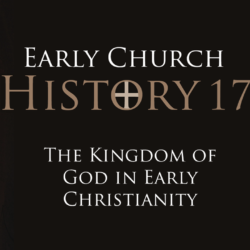
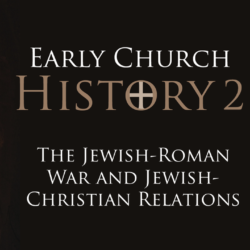
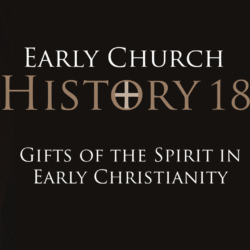
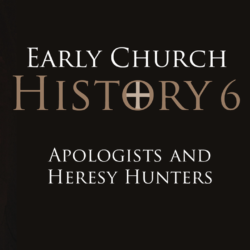
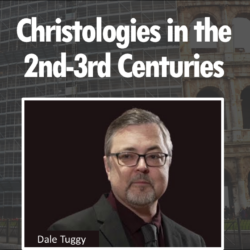
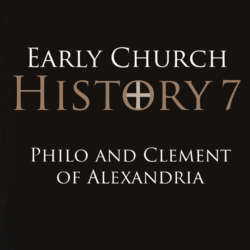
Excellent article, Sean. I must admit that I do find some aspects of our earthly life to be a bit “tacky”. It may have been considerably less so before the Fall, of course. In any case, Origen and friends do seem slightly pompous on the subject.